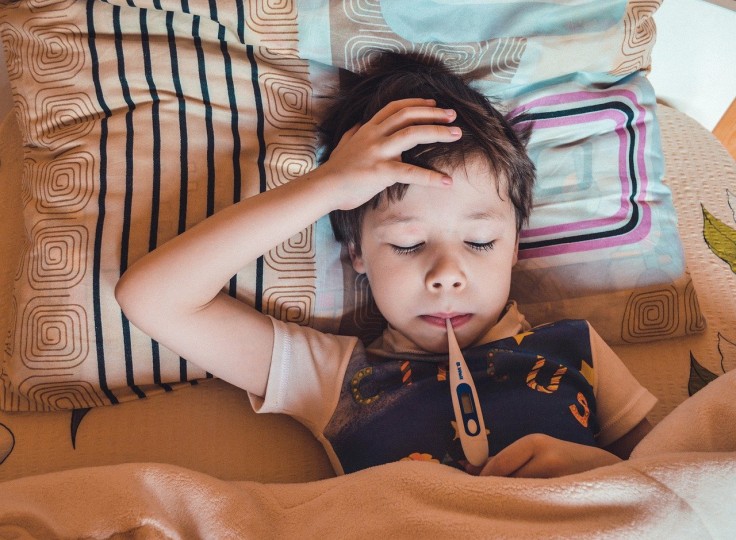
No parent wants their child to suffer from a cold or flu, especially during Christmas. However, viral illnesses are prevalent during flu season.
According to Dr. Cheryl Lynn Jackson, a pediatric doctor from the UNC School of Medicine, it's not unusual for kids to catch different kinds of viral infections, especially for those under two years old. There are various strains of infection because cold and flu viruses can mutate; thus, the symptoms of their illnesses could last for 10 to 14 days.
Here are some of the quickest treatments for children suffering from the cold or flu during the flu season:
1. Give the kids plenty of water.
A fever triggered by the flu can quickly cause dehydration. So, even if the children might not be thirsty, encourage them to keep drinking plenty of water because hydration is essential in their healing process or for curbing the virus.
While water is the main source of hydration, giving children sports drinks, juices, popsicles, or broth will also help. However, children younger than four years old might not tolerate sports drinks, Pedialyte, or another oral hydration solution, so it would be best to ask a doctor first to prevent their condition from getting worse.
2. Loosen the cough with honey.
For older kids, around five milliliters of honey given every few hours during the day will help loosen the cough. A study has proven that giving sick kids a teaspoonful of honey before bedtime will help them sleep better despite their respiratory infection.
Honey has also been found to be more effective for children than over-the-counter cough medicines. Jackson said they don't recommend cough medicines for smaller children since drugs may trigger life-threatening side effects when given too often. However, children below the age of one are not supposed to ingest honey because they could be at risk of developing botulism.
If parents need to give cough medicine to babies or toddlers, make sure that the formula and dosage are appropriate for their age group. Always check the bottle's label before administering the treatment.
3. Unclog the child's nasal passages with humidifiers.
Use a cool-mist humidifier in the child's room to help break up the mucus and loosen the nasal passages. Before turning it on, however, ensure that the machine is clean and without any molds.
There are also various saline drops or nasal sprays meant for children, providing immense relief. Parents may gently use a nasal suction device for smaller kids to clear out the mucus.
Remind your kids to blow their noses every so often as well and cover their mouth or nose when they feel a cough or sneeze coming on to prevent spreading the virus around the house, per the U.S. Centers for Disease Control and Prevention.
4. Get help from a doctor online.
Parents who feel that their child should see a doctor may seek an online consultation first instead of going to the clinic. Many medical facilities have set up virtual offices for non-emergency cases to lower the risks of patients getting sicker, especially when their immunities are down because of the cold or flu.
However, if the child appears to be seriously ill, don't second guess and visit the nearest emergency or urgent care facility in your area.